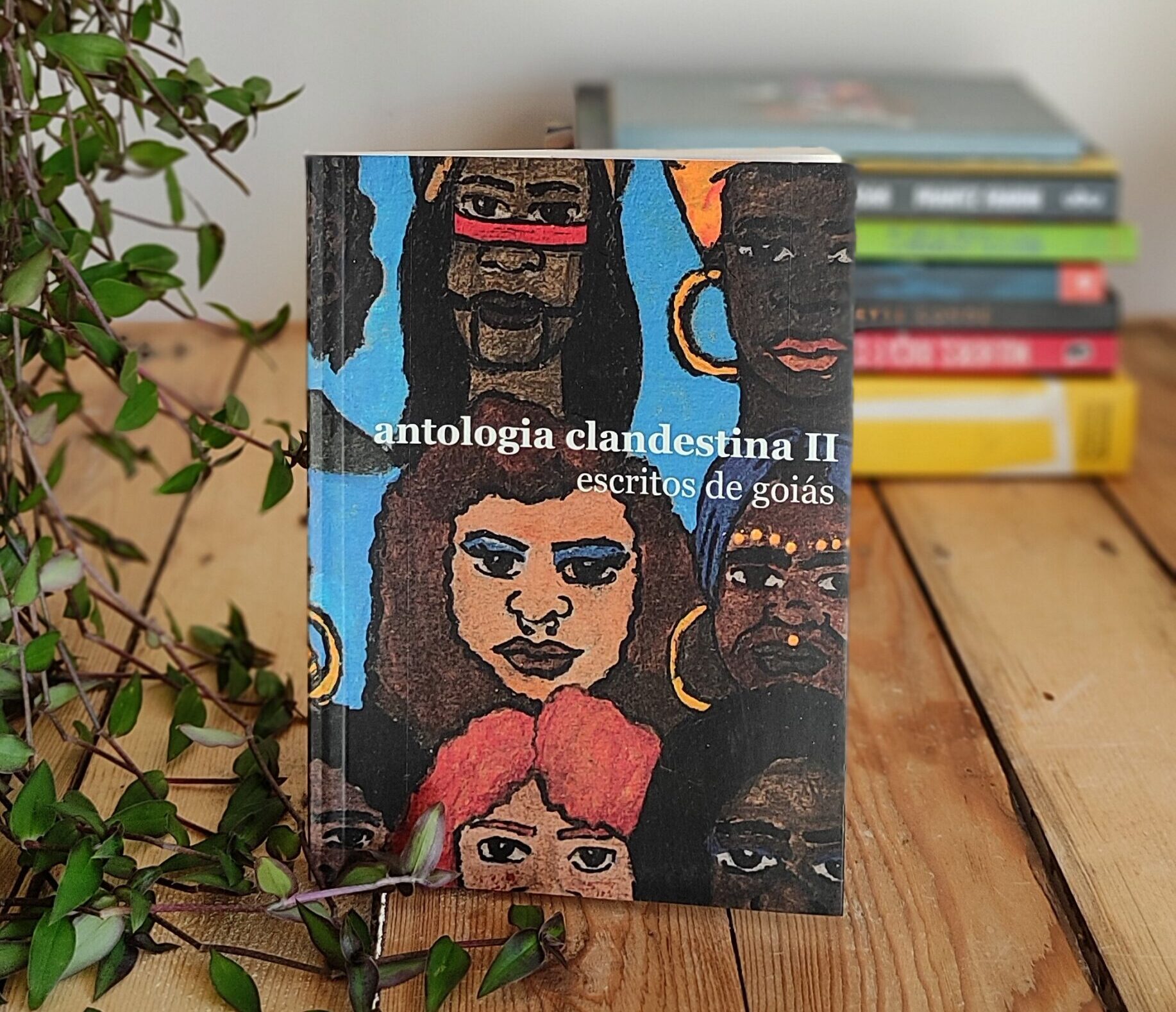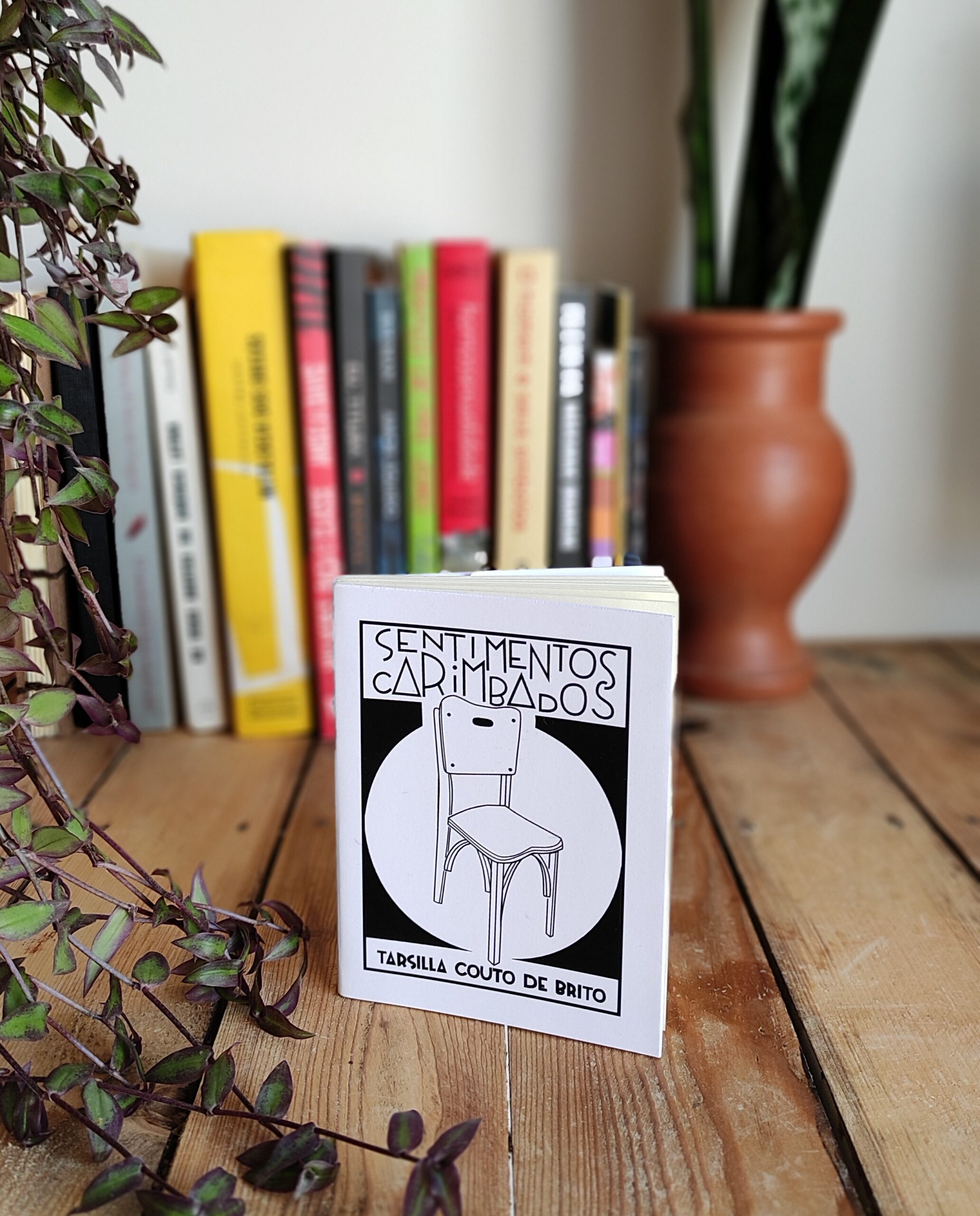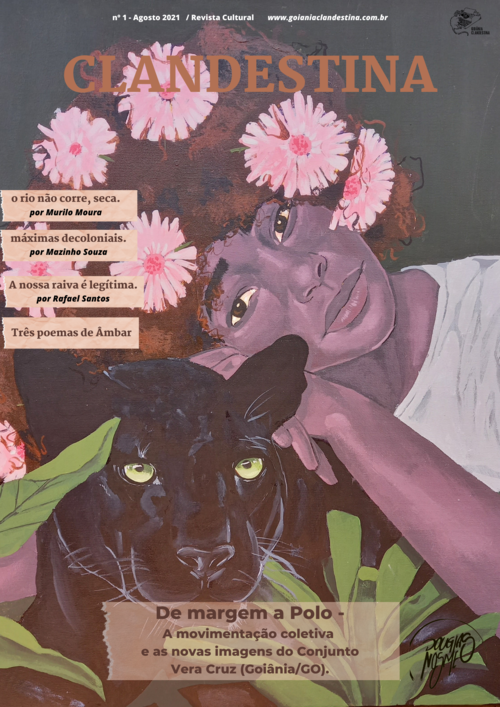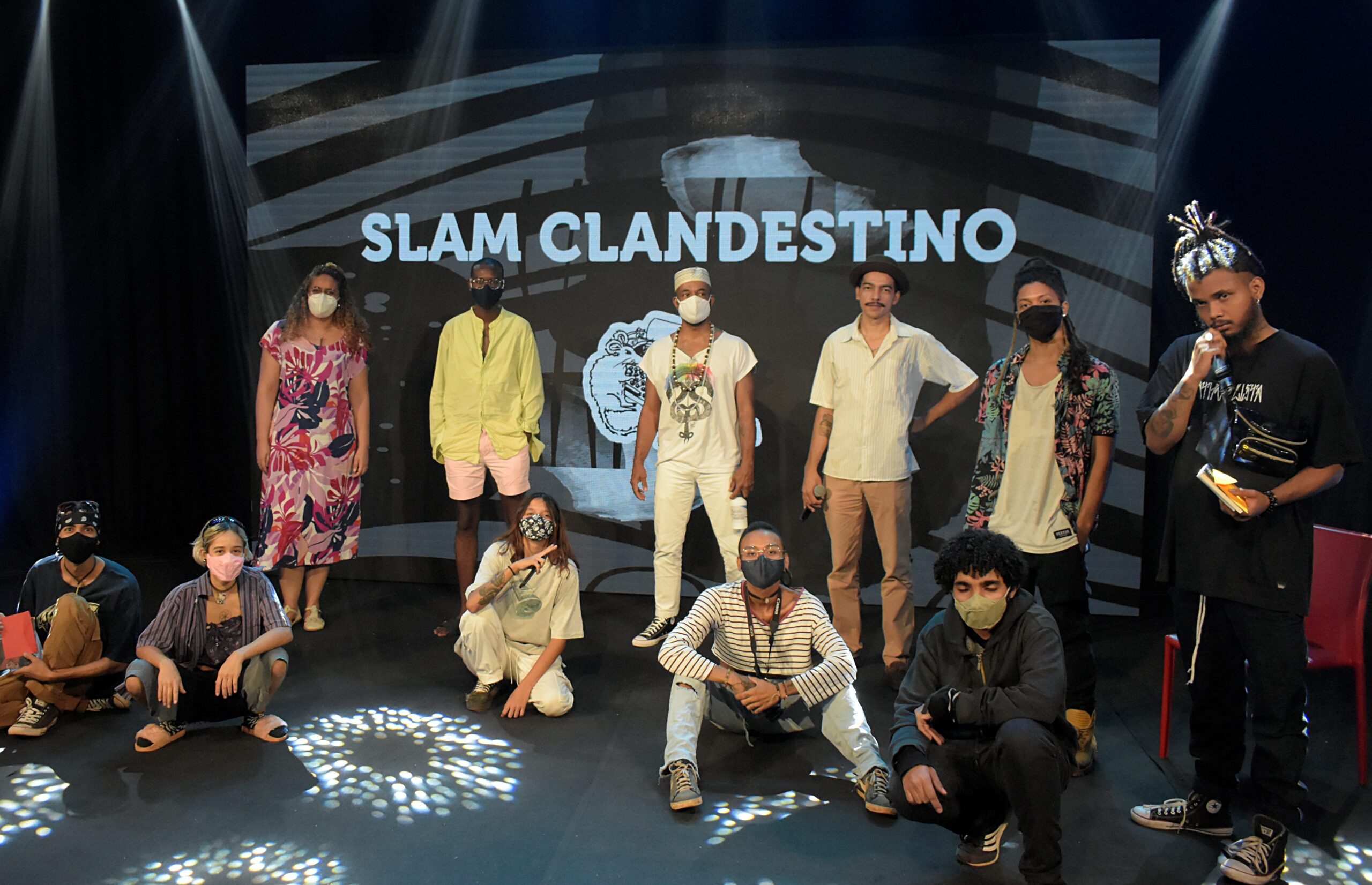A collective promotes independent writers in Aparecida de Goiânia (GO)
The collective from Aparecida de Goiânia proposes to unite current and independent writers, publishing their works and promoting events in the peripheries and decentralized schools.


Credit: Pablo Lopes/Goiânia Clandestina
By: Gabriel Murga / Lupa do Bem – Favela em Pauta
The collective Goiânia Clandestina is founded on the need for access to writing and reading as the foundation of contemporary cultural, critical and plural thinking. The initiative also aims to promote publishing opportunities for authors who have been made invisible, either because they are unable to finance their books or because they cannot otherwise reach the publishing market.
The collective began to be developed in 2015, when local authors gathered to read and listen to each other’s poems. But, in 2017, the initiative began to take shape with the launch of the book “Antologia Clandestina – Poesia Marginal Goiana”, presenting to the public the work that had already been sown and that was beginning to flourish.
“The project emerged as an emergency, to gather, publish and disseminate the writings and writers, in a marginalized area, in activity today in the state of Goiás”, says Mazinho Souza, a poet from Aparecida de Goiânia and founder of Goiânia Clandestina.

The collective produces magazines, festivals, and other editorial products that seek to increase public acceptance of these new authors, in addition to generating visibility. For Mazinho, the public of Goiás lacked productions with a cruder approach to reality and closer to what they live.
“I see that the [collective] Goiânia Clandestina has been fulfilling this role. There is a very good acceptance of any product that we carry out, obviously each product reaches a different audience, and therefore, for us, it is important to walk in several paths that literature has: magazines, books, festivals, slams, because in this way we contribute also for the democratization of literary work”, he points out.


Mazinho emphasizes that “those who do not write can recite”, and “those who do not recite can write”, making these actions move authors on several fronts and that they do not cling to a single way of making literature.
Goiânia Clandestina: Literature and the stimulus to new readers and authors
Mazinho pointed out, in a conversation with Lupa do Bem, the positive change that the publishing market faces, especially in Goiás, as a result of individual and, of course, collective initiatives:
“The more traditional market was somewhat consumed by new publishers, especially independent ones, which were born with an eye towards contemporary productions. This demonstrates incentive and possibility for those who are producing literature today. Although there is still a percentage of tradition in the new publishers themselves, as they still have the great traditional publishers as a reference, whether to follow or to distance themselves”, he says.


Lupa do Bem: Is the production of literature in the periphery a hook for the formation of new readers in these spaces?
Mazinho Souza: Goiânia Clandestina: Well, first of all, nobody publishes for themselves, so I think that literary production in the periphery already generates a stimulus for reading, almost simultaneously, since whoever is producing is also reading, even if it is the author herself. production. Certainly, there is still little reading habit in any geographic and spatial situation in Brazil. Prolonged work is necessary for reading to become one more thing in people’s daily lives, something natural. This says more about public policies than anything else: there is no incentive on the part of the open media, from the state and municipality, to practice reading without being at a university, for example.


How would you define the collective Goiânia Clandestina?
Mazinho Souza: Goiânia Clandestina, I believe, cannot be defined, since defining it takes away the possibility of it becoming something different. But Goiânia Clandestina is always in transformation, moving according to cultural and literary urgencies, always open to new phenomena so as not to fall into the archaic sameness of some institutions. Therefore, the best feature to understand Goiânia Clandestina is as a movement. The movement is not defined, it just happens, very close to a whirlpool. The whirlpool is much more than swirling dust, it’s what takes things out of place, gathers them in a single movement and then spreads them out. Goiânia Clandestina is like a whirlpool.


